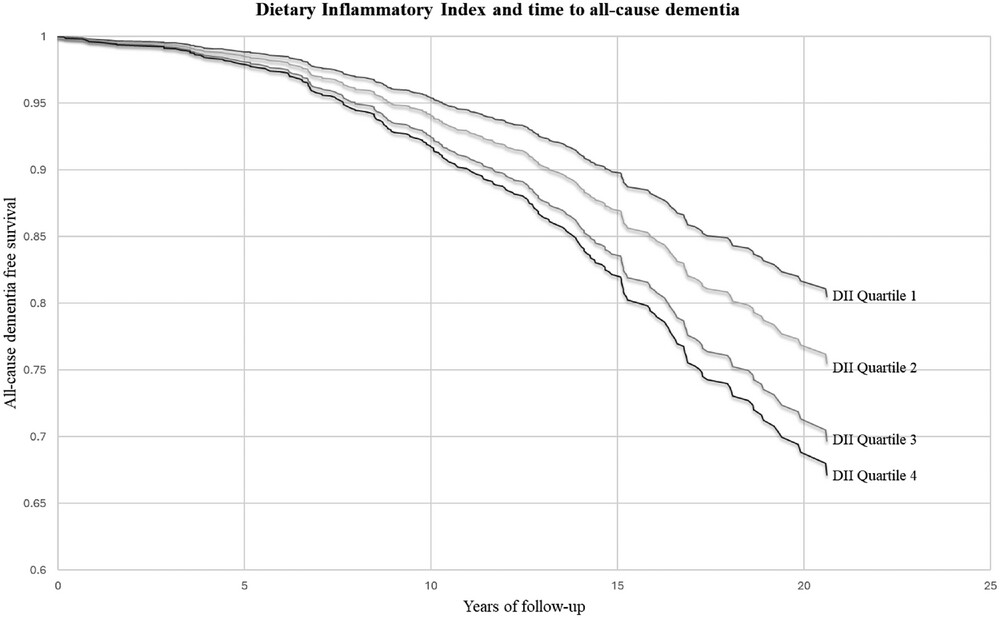The food you eat could either protect you from dementia, or put you at higher risk, according to several new studies.
With an aging global population, dementia is becoming more common across the world, and the WHO expects that by 2050, 152 million people will be diagnosed with some form of it.
This is a distressing prospect for the millions affected directly, and will strain an already-stretched system of professional and domestic carers. Prevention is the best bet we've got in lieu of a cure. It's been unclear which strategies will really help stave off dementia, but two new papers add to the growing pile of research showing that reducing gut inflammation might help.
One of the new studies found that a diet high in inflammatory foods, like heavily processed grains, red meats and saturated fats, increases a person's dementia risk by 84 percent.
The research followed 1,487 people, with an average age of 69 years, collecting up to 22.3 years' of data on their diets and incidents of all-cause dementia and Alzheimer's disease.

People whose diets scored higher for inflammation were at higher risk for both all-cause dementia and Alzheimer's disease. These scores were based on the balance of pro-inflammatory factors like saturated fats, total energy intake, and carbohydrates, and anti-inflammatory factors like fiber, omega-3 fats, and vitamins A, C, D and E.
"Although these promising findings need to be replicated and further validated, our results suggest that diets that correlate with low dietary inflammatory index scores may prevent late-life dementia," the authors write.
Another study found people who followed a diet full of foods that boost the body's antioxidant and anti-inflammatory activities had slower rates of cognitive decline.
It's called the MIND diet, which stands for Mediterranean-DASH Intervention for Neurodegenerative Delay. It's already been linked to slower cognitive decline, reduced dementia risk and symptoms from Alzheimer's disease, and less disability.
The new study reiterates these findings within a more diverse cohort, by following more than 5,200 older adults from Chicago, 60 percent of whom were Black, for eight years.
The MIND diet protected everyone from cognitive decline to some extent, but Black participants needed a higher level of adherence to the diet than White folks for an equivalent effect.
"Black and Hispanic older adults have a higher incidence and prevalence of dementia compared to White older adults," they note, suggesting broader socioeconomic, biological and environmental factors are at play.
Following the MIND diet involves eating:
Meanwhile, the diet sets achievable limitations on the following:
The two studies effectively address both sides of the same coin: pro-inflammatory diets increase dementia risk, while anti-inflammatory diets reduce it.
At this stage the research only shows an association, not cause, and it's unclear exactly why the links exist. But it's a relatively simple step we can take towards lowering dementia risk for us all, and potentially, that future healthcare burden.
Both articles were published in Alzheimer's & Dementia.